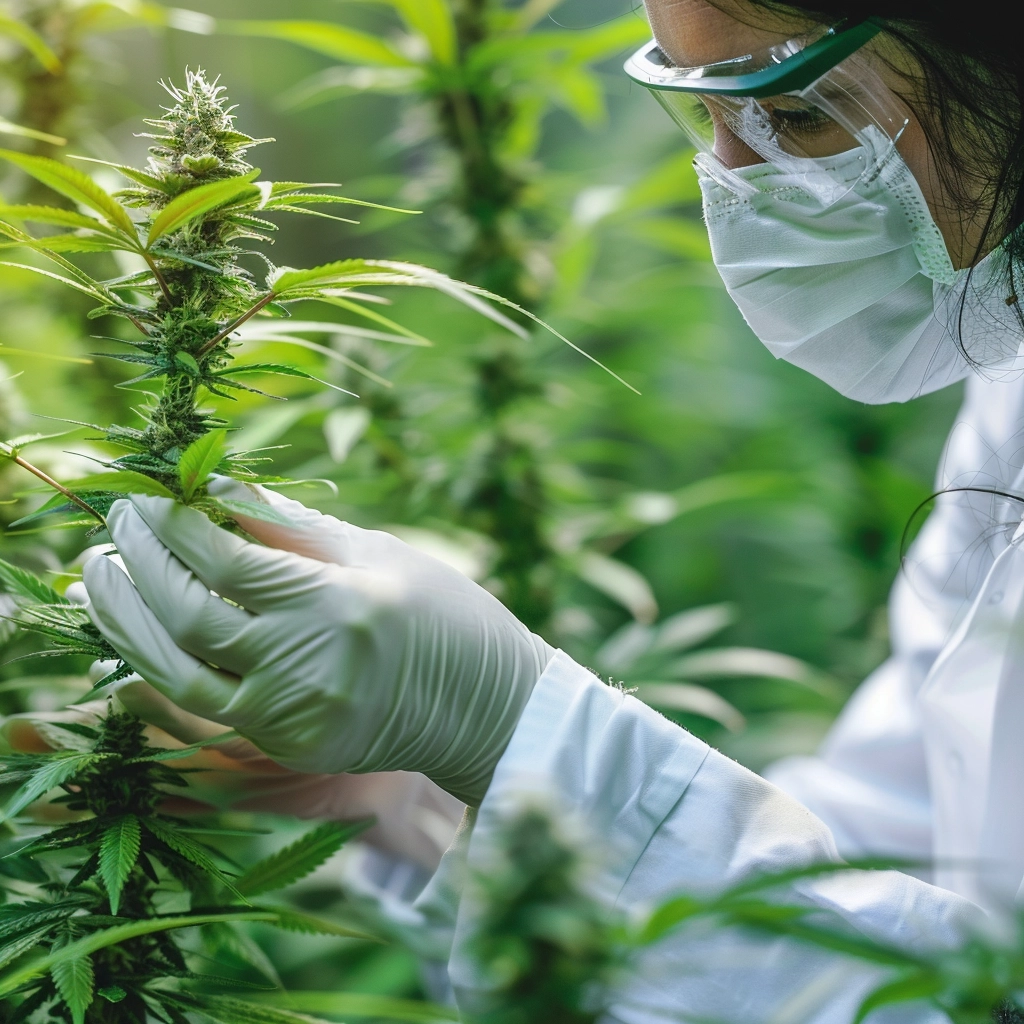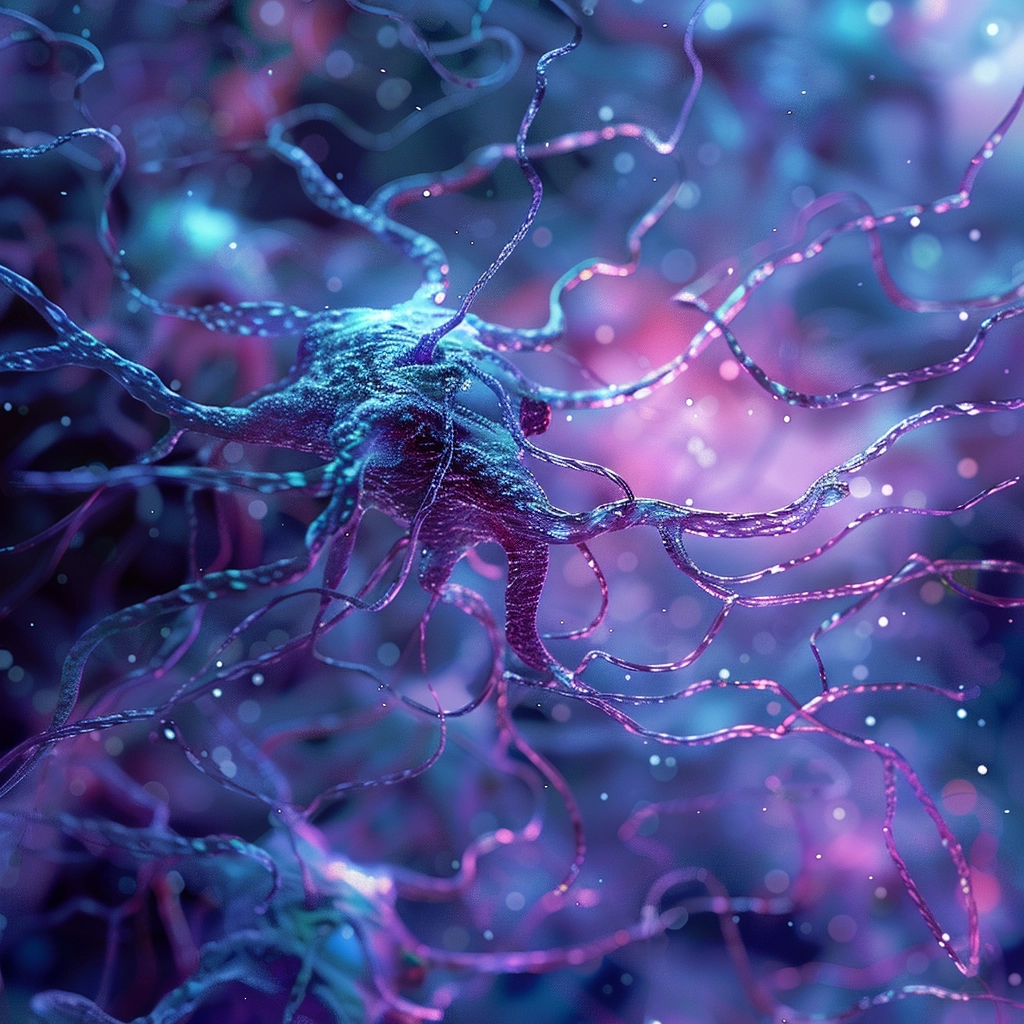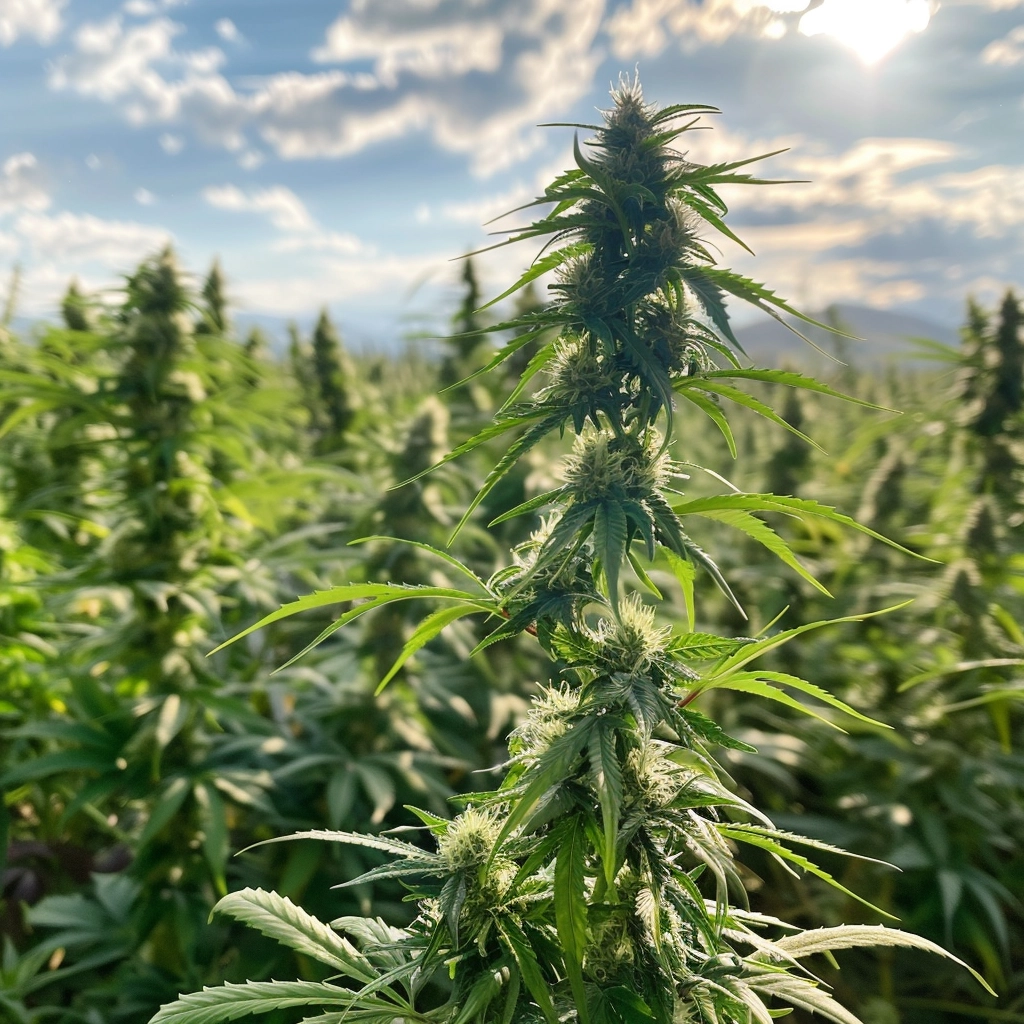In the ongoing quest to quell the stormy episodes of epilepsy, a condition that has long perplexed and challenged modern medicine, cannabis emerges as a beacon of hope. This once-controversial plant is reshaping our understanding of neurological treatments, offering not just relief but a potential transformation in the management of epilepsy and seizure disorders. This article delves into the pioneering role of medical cannabis in controlling seizures, exploring its mechanisms, impacts, and the profound implications for patients and the medical community alike.


Table of Contents
ToggleThe Plight of Epilepsy: A Persistent Challenge
Epilepsy, characterized by the occurrence of spontaneous seizures, affects millions worldwide. These seizures vary in type and intensity but share a commonality in their ability to disrupt lives and diminish quality of life. Traditional treatments, including a range of antiepileptic drugs (AEDs), offer relief for many but fail to control seizures adequately for approximately one-third of patients. This subset of patients with drug-resistant epilepsy has spurred a relentless search for alternative and adjunct therapies.
Cannabis: From Anecdotal Evidence to Clinical Approval
The journey of cannabis from anecdotal remedy to a clinically approved treatment for certain forms of epilepsy is a testament to its potential. Historical use of cannabis for seizures dates back to ancient times, but it wasn’t until the late 20th century that scientific interest rekindled, driven by compelling stories of individuals experiencing remarkable relief from cannabis.
CBD and Epilepsy: A Breakthrough
At the forefront of cannabis research in epilepsy is cannabidiol (CBD), a non-psychoactive compound that has shown significant promise in reducing seizure frequency. Unlike THC, CBD does not produce euphoria or intoxication, making it more suitable for medical use, particularly in children. The landmark approval of Epidiolex, a purified CBD oil, by the FDA in 2018 marked a pivotal moment in cannabis medicine. This drug is now prescribed for the treatment of severe, rare forms of epilepsy, including Dravet syndrome and Lennox-Gastaut syndrome.


Mechanisms of Action: How Cannabis Interacts with the Brain
The efficacy of cannabis in seizure control is believed to stem from its interaction with the endocannabinoid system (ECS), a complex network of receptors and neurotransmitters that regulates various physiological processes, including neuronal excitability and seizure activity.
Cannabinoid Receptors and Seizure Suppression
Research suggests that cannabinoids exert their antiepileptic effects primarily through the CB1 receptors, which are abundant in the central nervous system. Activation of these receptors by cannabinoids like THC can modulate neurotransmitter release and reduce neuronal excitability, thereby stabilizing the neurological environment and potentially decreasing seizure frequency.
The Entourage Effect: Beyond CBD
While CBD has garnered much attention for its benefits in epilepsy, emerging research suggests that other components of cannabis, including minor cannabinoids and terpenes, may also have anticonvulsive properties. The “entourage effect,” where these various components work synergistically, could enhance the therapeutic potential of cannabis-based treatments and inspire new formulations that are more effective and have fewer side effects than traditional AEDs.


Clinical Evidence and Patient Experiences
The shift from anecdotal lore to scientific evidence in cannabis research has been bolstered by numerous clinical trials that demonstrate the efficacy of CBD in reducing seizure frequency in drug-resistant epilepsy. Patient reports and observational studies also contribute to a growing body of evidence that supports the use of cannabis not only as a direct antiepileptic treatment but also in managing comorbidities associated with epilepsy, such as depression and anxiety.
Navigating the Challenges: Dosage, Administration, and Legality
Despite its promise, the use of cannabis in epilepsy treatment is not without challenges. Determining optimal dosages, understanding the long-term effects of treatment, and navigating the legal landscape where cannabis laws vary widely are all critical considerations for patients and healthcare providers.
The Future of Cannabis in Epilepsy Treatment
Looking ahead, the role of cannabis in epilepsy and seizure control is poised for expansion. Continued research and clinical trials will be vital in optimizing dosages, delivery methods, and combinations of cannabinoids for individual patient needs. Moreover, as legal barriers continue to diminish, access to cannabis-based treatments is likely to improve, providing relief and new options for patients grappling with this challenging condition.
In conclusion, the integration of medical cannabis into the realm of epilepsy treatment represents a significant breakthrough in neurology. Offering more than just seizure control, cannabis stands as a symbol of hope and a catalyst for broader changes in how we approach, understand, and treat neurological disorders in the modern era.
FAQ: Medical Cannabis for Epilepsy and Seizure Control
How does medical cannabis help control seizures?
Medical cannabis, particularly cannabidiol (CBD), has been shown to reduce seizure frequency in certain types of epilepsy. CBD interacts with the endocannabinoid system (ECS), which plays a key role in regulating neuronal excitability and maintaining neurological balance. CBD’s anti-seizure effects are believed to stem from its ability to modulate neurotransmitter release and reduce neuronal excitability through its action on various neural pathways.
Is medical cannabis effective for all types of epilepsy?
Medical cannabis has been most effective in treating severe forms of epilepsy that are often resistant to traditional medications, such as Dravet syndrome and Lennox-Gastaut syndrome. While it can provide benefits for other types of epilepsy, its efficacy can vary depending on the specific condition and individual response.
Can THC also be used to treat seizures?
THC (tetrahydrocannabinol), the psychoactive component of cannabis, has also demonstrated potential in reducing seizures in some studies. However, due to its psychoactive effects, its use is more controversial and not widely recommended, especially for children or for those who may be sensitive to its psychoactive properties. Most medical protocols focus on CBD or low-THC formulations.
What are the risks of using medical cannabis for epilepsy?
While CBD is generally well-tolerated, potential side effects include drowsiness, diarrhea, and changes in appetite. THC’s side effects may include psychoactive effects such as euphoria or dysphoria, dizziness, and cognitive disturbances. Long-term effects of medical cannabis use, particularly THC, are not fully understood and can include impacts on cognitive development in young users.
How is medical cannabis administered for seizure control?
Medical cannabis can be administered in several forms, including oils, capsules, and oral sprays. The choice of administration depends on patient preference, the specific product’s formulation, and medical advice. Epidiolex, the FDA-approved CBD oil for epilepsy, is administered orally.
Do I need a prescription to use medical cannabis for epilepsy?
Yes, in jurisdictions where medical cannabis is legal, it is typically required to have a prescription from a healthcare provider to use cannabis, especially for conditions like epilepsy. Epidiolex, the CBD-based medication approved by the FDA, specifically requires a prescription.
Can medical cannabis replace current epilepsy medications?
While medical cannabis has provided profound benefits for some patients, it is not a replacement for all epilepsy medications. It is often used as an adjunct therapy, particularly in drug-resistant cases where traditional medications fail to control seizures effectively. Any changes to epilepsy treatment should be done under strict medical supervision.
How quickly does medical cannabis take effect for epilepsy?
The onset of effect can vary based on the form of cannabis used and the individual’s metabolism. Oral forms like oils may take longer to start working compared to inhalation (not typically recommended for epilepsy treatment due to health risks). Some patients may see improvements within days, while others might take weeks to notice significant changes.
Is there ongoing research into cannabis for epilepsy?
Yes, research is ongoing and expanding as more countries legalize cannabis for medical use. Current studies focus on understanding the mechanisms of action, long-term safety and efficacy, and potential for different cannabinoids besides CBD to treat epilepsy. Further research will help refine dosing guidelines and improve treatment protocols.
These FAQs aim to address common inquiries regarding the use of medical cannabis in the management of epilepsy and seizures, highlighting its potential benefits while acknowledging the complexities and challenges involved in its application as a treatment option.
Kannabu's Online Cannabis Educational Resources
Read Educational Online Guides and Articles to Learn About Cannabis
- Navigating the Green Path: CBD vs. THC in Medical Treatment
- The Aromatic Architects of Healing: The Role of Terpenes in Medical Cannabis
- Navigating the Green Frontier: Clinical Trials on Cannabis and Its Effects
- Charting the Green Path: Cannabis Dosing Guidelines for Medical Use
- The Endocannabinoid System: Nature’s Balancing Act in Human Health
- A Green Horizon: Cannabis as an Alternative to Opioids
- Navigating the Mind’s Garden: Cannabis and Mental Health Treatment
- Unlocking the Green Code: Exploring the Genetic Diversity and Pharmacological Promise of Cannabis
- Weaving Green into Gold: The Integration of Medical Cannabis into Traditional Medicine
- The Therapeutic Promise of Medical Cannabis: Exploring the Spectrum of Cannabinoids
- From Young to Old: The Compassionate Embrace of Medical Cannabis in Pediatric and Geriatric Care
- Green vs. Traditional: Navigating the Crossroads of Medical Cannabis and Conventional Therapies
- Beyond the Pain: The Comparative Effectiveness of Cannabis in Chronic Pain Management
- Unlocking Cannabis’s Secrets: The Journey Through Cannabinoid Pharmacokinetics and Pharmacodynamics
- Green Paws: Navigating the Frontier of Medical Cannabis in Veterinary Care
- Unlocking Relief: The Transformative Role of Medical Cannabis in Pain Management
- Harnessing Harmony: Medical Cannabis and the Battle Against Autoimmune Disorders
- Embracing the Night: How Medical Cannabis Transforms Sleep Management
- Turning the Tide: Cannabis as a Catalyst for Relief and Recovery in Nausea and Appetite Stimulation
- Illuminating the Neural Pathways: The Transformative Role of Medical Cannabis in Neurological Conditions
- Harnessing Harmony: Medical Cannabis and the Battle Against Autoimmune Disorders
- A Clearer View: Medical Cannabis in the Treatment of Glaucoma
- Breaking Boundaries: Cannabis and the New Frontier in Epilepsy and Seizure Control
- Revolutionizing Relief: Medical Cannabis in Cancer Symptom Management
- Navigating the Storm: Cannabis as a Beacon of Hope in Multiple Sclerosis Treatment
- Cannabis: A Natural Respite for Arthritis and Joint Pain
- Healing from Within: The Role of Medical Cannabis in Treating Gastrointestinal Disorders
- Healing Invisible Wounds: Cannabis in PTSD and Trauma Treatment
- Balancing the Mind: The Potential of Medical Cannabis in Bipolar Disorder and Mood Stabilization
- Illuminating the Mind: Cannabis in the Treatment of Alzheimer’s and Neurodegenerative Diseases

